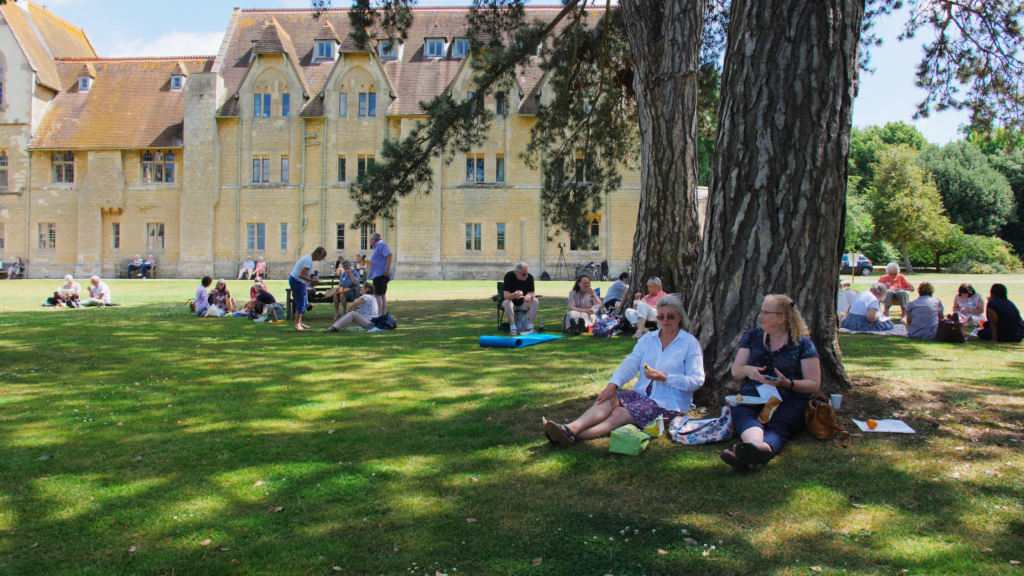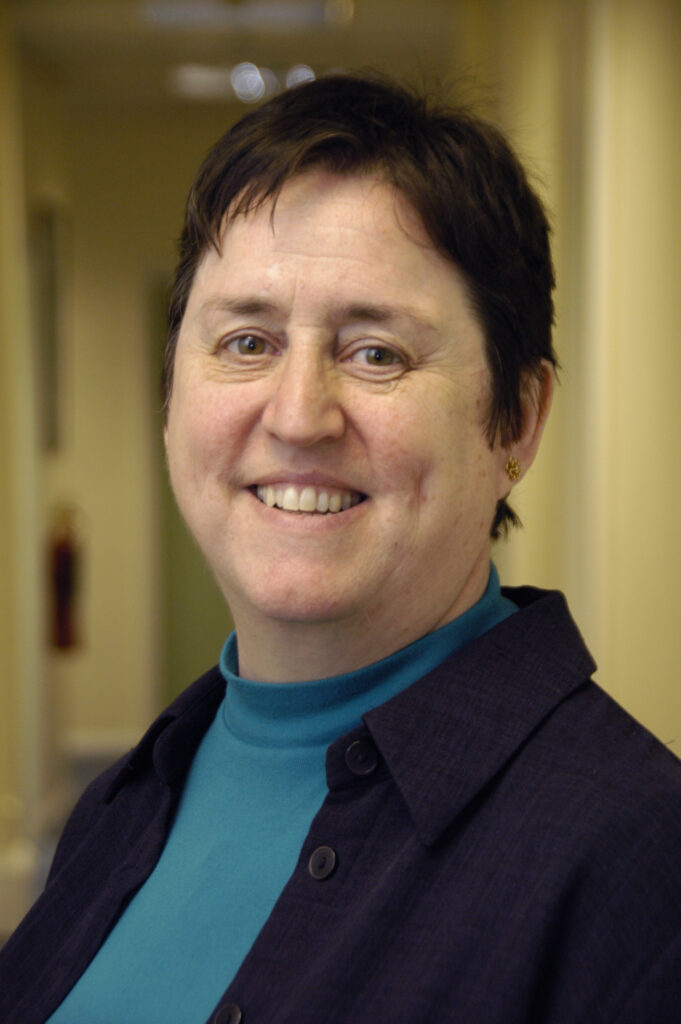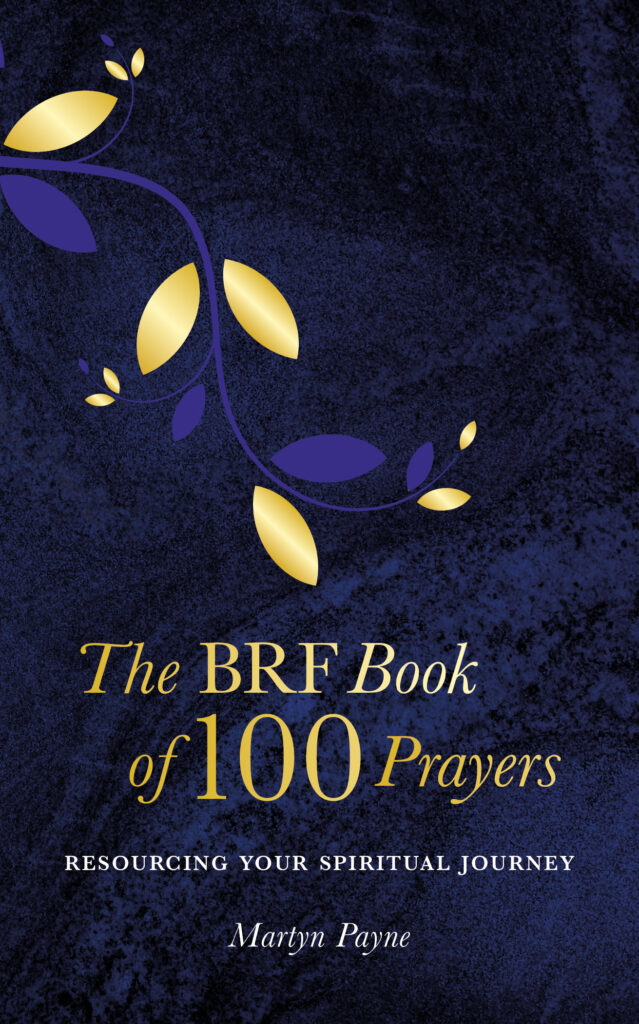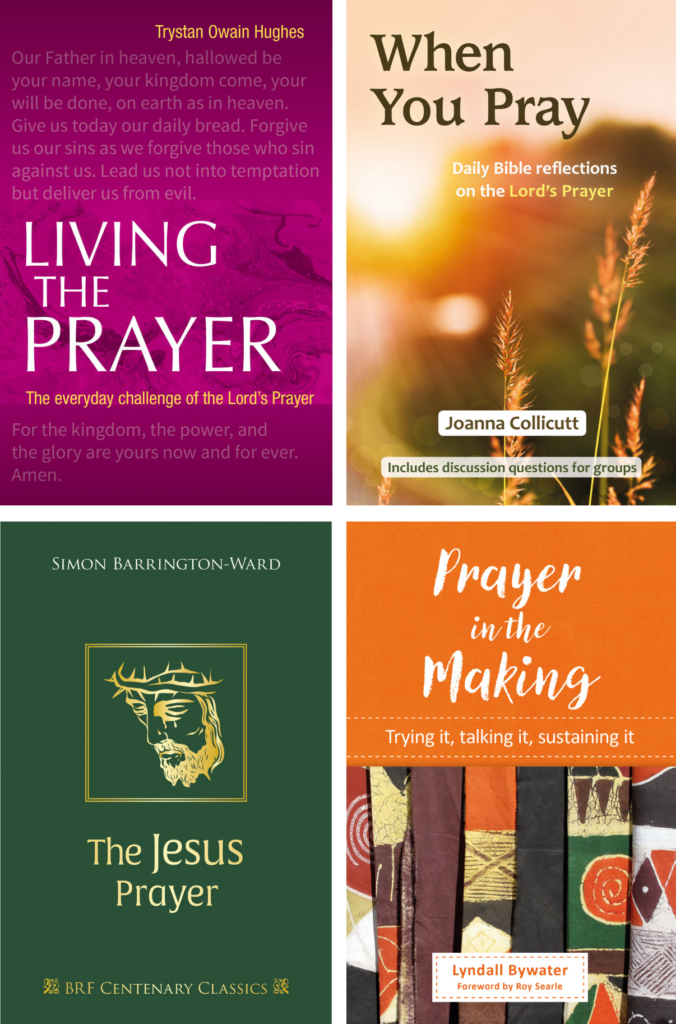This week we begin a new series of articles featuring talks and workshops from our Festival of Prayer, held at Rippon College, Cuddesdon, on 9 July. The theme of the day was ‘prayer and personality’ and we begin with extracts from Dr Gemma Simmonds’ brilliant keynote address.
31 July 2022
Exploring prayer and personality
The Festival of Prayer, organised with the diocese of Oxford, was a wide-ranging exploration of the relationship between prayer and personality. Dr Gemma Simmonds CJ launched the day with a brilliant address: a seamless blend of wisdom, experience, learning and humour, too good not to share. Here are some of the highlights.
There’s no such thing as a bad prayer
I have been a spiritual director, accompanying other people in prayer, for the best part of 30 years, and the thing that always makes me feel sad is when I meet people who say, in one way or another, ‘I can’t pray’. And they really mean it. They think they can’t pray. But when I try to explore that with them and look at what makes them think that, very often it turns out that these are good people, people who are very close to the Lord, but who have a kind of set idea of what prayer is.
In their minds, prayer is something ‘out there’ – this objective thing that we have to learn how to do and there are very definite rights and wrongs. But people find that they keep trying to do this thing that, in their minds, other people do so much better. They keep trying and they keep failing, and they feel discouraged and they feel disheartened. And they feel like bad Christians or bad pray-ers.
But, in my experience, there is no such thing as a bad prayer. The only bad prayer is no prayer. When people tell me they can’t pray, because it doesn’t work, I say, ‘Why don’t we try unpacking that, and why do you think that’s the way to pray, as opposed to any other?’
‘It took me a long time to let go of what’s been called the hardening of the “oughtaries”. How I “ought” to pray.’
It took me, I have to say, a long time to let go of what’s been called the hardening of the ‘oughtaries’. How I ‘ought’ to pray. When I thought back to my childhood and adolescence, particularly, and the time as a teenager when I was struggling with this sense of a call from God and it was like God was calling Coco the clown. Why on earth? You have got to be kidding. And there’s God quietly saying, ‘No, I’m not. I could do with a couple of clowns.’
Prayer as a way of life
So when did I learn to pray? When did prayer begin to work so deeply that it actually called me to make it a way of life? It was when I was singing! I was a member of the choir and very, very often, we would sing something and it would just stay with me for the whole of the rest of the day, the music and the words, echoing, like an echo chamber going deeper and deeper. And it was the day that I stopped thinking of choral singing or any kind of singing as a separate thing: ‘Oh, that’s hymns’, ‘that’s liturgy’, ‘that’s choir’ and prayer is this other, different thing.
‘When I began to give myself permission to realise that for me singing is prayer and prayer is singing – oh my goodness, what a revelation.’
When I began to give myself permission to realise that for me singing is prayer and prayer is singing – oh my goodness, what a revelation. And as I’ve gone on, accompanying and listening to people pray, it’s when they allow themselves to do something that feels entirely natural to them – even if that something doesn’t carry ‘the big P label’ – that they actually learn to become the natural contemplatives that people are.
We begin to understand that we actually have not only God’s permission but God’s urgent invitation to pray as we can, not as we can’t, and to pray as we are, not as we aren’t… We begin to accept and not get worried about the fact that prayer is a matter of horses for courses… And we see that so often we’ve struggled with prayer because we’re trying to fit ourselves into a straitjacket that doesn’t allow us room to breathe.
‘Prayer is a matter of horses for courses.’

Different people, different temperaments
We’ve only got to look at the followers of Jesus; we’ve only got to look at the prophets. Can you imagine sitting down to a meal with Ezekiel? What a nightmare! Really. Whereas I’d quite fancy an evening with Hosea or Amos; Isaiah? I’d never get up from the table. But Jeremiah? What fun that would be!
Different people, different temperaments: we all come as a different package. God knows that, and God loves that, and God is willing to do business with that. It’s just that very often we don’t think we’re allowed or that it’s okay. Or we think we should still be trying to do what it says in the book.
Some of us really do find thinking over scripture, ruminating over the words, Lectio Divina, exactly presses our buttons. Fantastic, I’m delighted for you. Keep going. But I know there are people for whom that many words and just the very idea of reading at all: they can’t be doing with it.
But send them on a walk or stick them in front of a picture, or allow them to paint as they go, or put them in front of nature and invite them simply to listen and to look and to breathe and to be – then you’ll be lucky if you get them back two hours later.
‘The invitation is to pray as we can, not as we can’t, and to give ourselves permission for that praying as we can to be as broad as it possibly can be.’
As the 20th century Trappist monk, Thomas Merton said, ‘our temperament is a gift of God, a talent with which we must trade until Christ comes again.’ What is God’s invitation to us therefore, whether in our own prayer life, or trying to help other people to pray, or just listening to someone talking about how God is at work in their life? The invitation is to pray as we can, not as we can’t, and to give ourselves permission for that ‘praying as we can’ to be as broad as it possibly can be. ‘But that’s not necessarily prayer’, I hear you cry. Says who? At the end of it – whatever it is that you’ve been doing – does it feel to you, in some (maybe dim) sense, that there has been an encounter with faith? An invitation to faith? An invitation to hope? An invitation to love?
What do you want?
St Augustine of Hippo – there’s another temperament and a half, whoa! I always think of Augustine as the patron saint of desire. In one of his sermons, on the letters of John, he said, ‘the whole of Christian life is holy desire. What you desire, you cannot see yet. But the desire gives you the capacity.’
The desire gives you the capacity. ‘This is our life’, he ends, ‘to be exercised by desire.’ That fabulous line: this is our life, to be exercised by desire. So here’s the question that I wish to leave you with. One of the most common things that Jesus says to people in the New Testament is, what do you want? What is your desire?
Just for a moment think about what your answer would be to that question. What is your personal answer? What is your personal desire? When Jesus says, ‘What do you desire, what do you want?’, how do you answer his question? Because that will tell you what grace it is that he’s wanting to offer you.
It seems to me that a desire within us, in prayer, is always an indication of a grace that God is trying to offer us. It may be that it’s a desire that cannot be fulfilled this side of heaven, but when we allow that desire to grow strong in us, desire gives us the capacity. When we get in touch with those deep desires, it’s as if it hollows out a space within us, that God is longing to fill.
‘A desire within us, in prayer, is always an indication of a grace that God is trying to offer us.’

Gemma Simmonds is a Roman Catholic sister and a senior lecturer in pastoral theology based in Cambridge. She lectured in Christian spirituality at Heythrop College, University of London 2005–2018 and was a chaplaincy volunteer in Holloway Prison for 25 years. She has been a missionary in Brazil and chaplain in the Universities of Cambridge and London. A regular broadcaster for the BBC, her most recent book is Dancing at the Still Point: Retreat Practices for a Busy Life, published by SPCK in 2021.

The BRF Book of 100 Prayers
Coming in August, this beautiful hardback collection of prayers by Martyn Payne is a companion volume to the BRF Book of 365 Bible Reflections. To find out more and to order click here.
You might also be interested in the following titles:

Discover how you can support BRF in prayer
We are completely dependent on prayer – it is the lifeblood of the organisation and of all our ministries. Find out how you can get involved.
